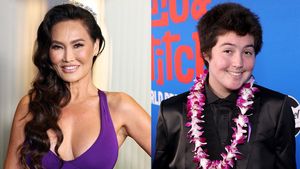A gay couple in South Korea has become the first to be granted spousal benefits from state health insurance.
The nation's supreme court ruled Thursday that the National Health Insurance Service must provide equal spousal coverage to So Sung-wook and Kim Yong-min. The couple filed a lawsuit against the government agency in 2021 after it cancelled their spousal benefits due to them both being men, with the Seoul High Court ruling in their favor last year.
Chief Justice Jo Hee-de said during the televised trial via Reuters that because there are no current written policies about same-sex couples, to deny them insurance "is an act of discrimination that violates human dignity and value, the right to pursue happiness, freedom of privacy, and the right to equality before the law." He added that "the degree of violation is serious."
The decision marks the first legal recognition of a same-sex unions in South Korea, which does not have marriage equality. So and Kim refer to themselves as a married couple, though the nation does not legally recognize their union. Kim told the outlet that he broke down in tears after learning of the ruling.
"I couldn't believe when I heard the ruling. I was extremely happy and I started crying," he said. "It took four years to earn this dependent status. We need to fight harder to legalize same sex marriage going forward."
Support for marriage equality in South Korea is relatively low, even when compared to other Asian nations. Only 41 percent of South Koreans support legalized marriage equality, according to a November Pew Research survey, putting the country in ninth place out of 12 nations polled.
Amnesty International’s East Asia researcher Boram Jang said in a statement that the ruling "is a historic victory for equality and human rights in South Korea,” but that "authorities must now take further steps to protect the rights of LGBTI individuals."
“While this decision is a major milestone, the case itself is a sobering reminder of the lengthy judicial processes that same-sex couples must endure to secure basic rights that should be universally guaranteed,” Jang said.










































































